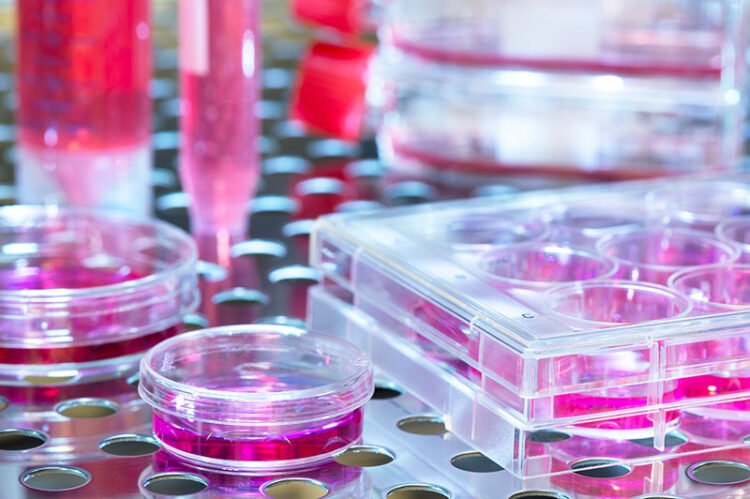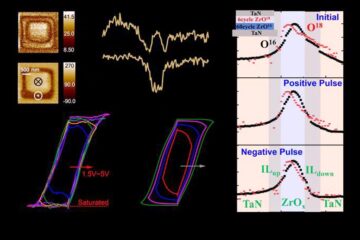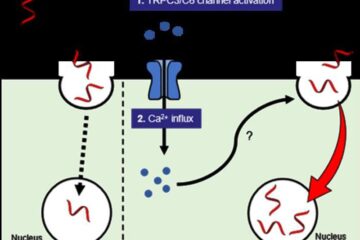New assay concept for vaccine development

Cell and tissue samples in a 37 ° C incubator.
Photo © Fraunhofer EMFT / Bernd Müller
All over the world, research into the development of a vaccine against the SARS-CoV2 virus is running at full speed – the breakthroughs of the last few days have made the headlines. Researchers from Fraunhofer EMFT and the University of Regensburg are working on a new assay concept that could speed up the evaluation of vaccine candidates and at the same time increase their significance.
The corona pandemic confronts the world community with challenges never seen before. Despite massive restrictions in public and private life, the number of infected persons is currently on the increase. In the fight against the highly infectious virus, hopes rest primarily on a vaccine that will soon be available.
It is a race against time, because the development of a vaccine is a complex process with lengthy tests, to ensure that it functions and has no side effects. One example is the so-called neutralization test, an essential component of vaccine development: it can be used in the laboratory to test whether a vaccine candidate triggers an immune response in the human body and whether a sufficient number of antibodies are produced to prevent infection.
This is done by comparing the infectivity of the virus in the presence and absence of the serum of a vaccinated person using a suitable model of a host cell. The condition of the host cells enables researchers to determine whether and in what quantity antibodies are present in the serum sample in order to evaluate the effectiveness of the vaccine.
Fast and sensitive antibody detection
A research team around Prof. Joachim Wegener, head of the Cell-Based Sensor Technology group at the Fraunhofer Institute for Microsystems and Solid State Technologies EMFT, and Prof. Ralf Wagner from the Institute for Microbiology and Hygiene at the University of Regensburg is working on an innovative approach that could not only speed up but also optimize the complex neutralization tests. The existing labour- and cost-intensive staining procedure shall be replaced by a new assay concept, which works with intrinsic biological amplification mechanisms. This allows the detection of a very low-threshold viral influence on cell physiology in real time – instead of a snapshot. The assay is easily scalable to high throughput by an automated, electrical readout.
An approach for future pandemic scenarios
However, it will take some time until the new assay is ready for use. The results so far show that the concept is coherent and functioning. In the coming weeks, the first sample runs of real neutralization tests are planned. The researchers hope that their new assay approach will then make an important contribution to accelerate and optimize vaccine development. “If our approach works for SARS-CoV2, the principle can be transferred to other viruses with little effort,” says Wegener. “Because after the pandemic is before the pandemic. Unfortunately, we must expect similar scenarios in the future.”
Measurement kit for vaccine suppliers and health authorities
In the future, a measurement kit for the neutralization test with the new assay approach is planned, in cooperation with medical device manufacturers. The kit could be used by companies developing vaccines, for experimental proof of the functionality of the vaccine. Health authorities could also use the device, for example to document the antibody titers of people vaccinated with novel vaccines.
Wissenschaftliche Ansprechpartner:
Prof. Dr. Joachim Wegener
Institute of Analytical Chemistry
University of Regensburg
Phone +49 941 943-4547
E-Mail: joachim.wegener@ur.de
https://www.uni-regensburg.de/chemistry-pharmacy/analytical-chemistry/wegener/jo…
Prof. Dr. Ralf Wagner
Institute for Medical Mikrobiology und Hygiene
Universiy of Regensburg
Phone +49 941 943-6452
E-Mail ralf. wagner@ukr.de
www.wagner-lab.de
Media Contact
All latest news from the category: Health and Medicine
This subject area encompasses research and studies in the field of human medicine.
Among the wide-ranging list of topics covered here are anesthesiology, anatomy, surgery, human genetics, hygiene and environmental medicine, internal medicine, neurology, pharmacology, physiology, urology and dental medicine.
Newest articles

Evidence for reversible oxygen ion movement during electrical pulsing
…enabler of the emerging ferroelectricity in binary oxides. In a recent study published in Materials Futures, researchers have uncovered a pivotal mechanism driving the emergence of ferroelectricity in binary oxides….

Next-generation treatments hitch a ride into cancer cells
Researchers from Osaka University discover that opening a channel into cancer cells helps antisense oligonucleotide drugs reach their targets. Antisense oligonucleotides (ASOs) are next-generation drugs that can treat disease by…

Boron deficiency: oilseed rape reacts as with infection and pest infestation
Genetic mechanisms uncovered… Boron deficiency has a devastating effect on oilseed rape and related plants. However, little is known about the underlying genetic mechanisms. A study shows that the response…





















